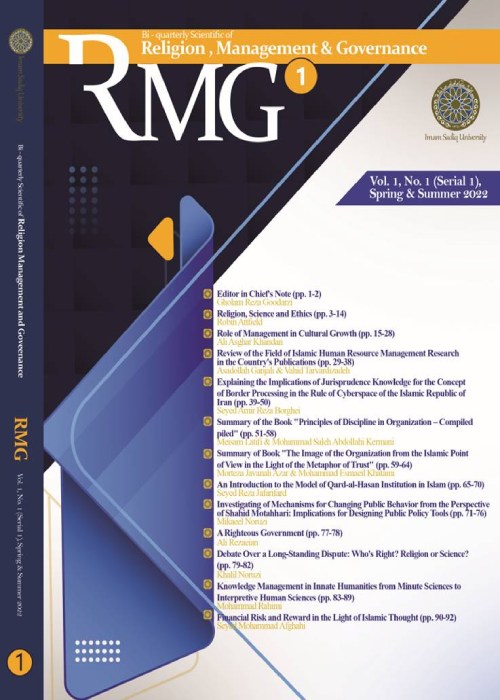Financial Risk and Reward in the Light of Islamic Thought
The implementation of Islamic social systems in society is essential for the realization of the new Islamic civilization. In this regard, financial systems play a crucial role. In Islamic finance, paying attention to jurisprudential rules has been instrumental in the process of discovering, designing, and implementing the Islamic economic system. One of the key jurisprudential rules that will have a great impact on the macro-designs of the economic system is the rule of “nahi an ribh la yodman 4”. Following the definition of this rule, we review its main applications in Sharia-based contracts in this paper. There have been controversies regarding the concept of the rule of nahi an ribh la yodman [1]. Although differences in the interpretation of the concept of this rule will continue, a more precise definition of this rule means the prohibition of receiving profit on capital which is guaranteed by others[1]. Some scholars have pointed out that the nahi (prohibition) of profit will imply the invalidity of the transaction [1], but what seems stronger is the word nahi does not imply the invalidity of the transaction [3]. Also, according to the use of daman (liability) in some Islamic texts, it can be considered as bearing the risks of an asset [2]. In other words, according to this rule, if a person has not liability of financial losses, the profit from that property will not be for him. The rule is used that it is not permissible to give a profit to an owner who has not accepted the risk of his property.The main evidence of this rule is a hadith with an admissible chain of narration that Ammar quotes from Imam Sadiq (PBuh): “The Messenger of God (PBuh) sent a man from among his companions to a governor, and he said to him: I have sent you to the people of Mecca … to forbid them earning a profit that is not guaranteed” [5]. We will now discuss some of the main applications of this rule in Sharia-based contracts.
- حق عضویت دریافتی صرف حمایت از نشریات عضو و نگهداری، تکمیل و توسعه مگیران میشود.
- پرداخت حق اشتراک و دانلود مقالات اجازه بازنشر آن در سایر رسانههای چاپی و دیجیتال را به کاربر نمیدهد.


